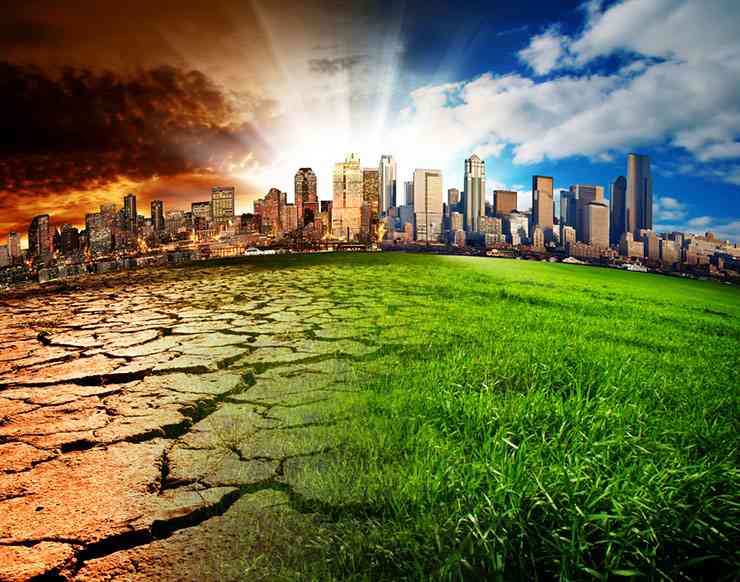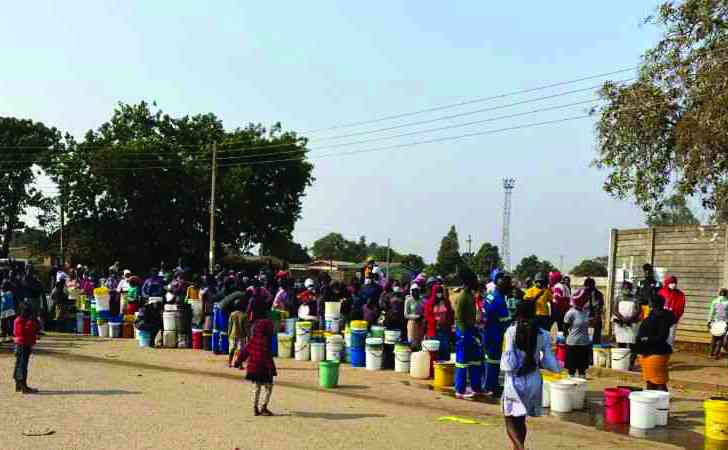
Climate change is no longer a distant environmental concern—it is a pressing public health emergency.
The planet’s rising temperatures, shifting rainfall patterns, and extreme weather events are intensifying the spread and severity of many human diseases.
Scientists say more than half of the world’s known human pathogenic diseases, such as dengue, malaria, and cholera, have become more abundant because of climate change.
Researchers found that 58% of human diseases, some 218 out of a known 375, have been made worse by extreme weather events such as flooding, heat waves, and drought, all of which are linked to climate change.
For Africa, a continent already grappling with fragile health systems, poverty, and limited infrastructure, this reality is especially alarming.
The connection between climate and disease is rooted in basic ecology.
Pathogens, vectors, and hosts all exist within climate-sensitive systems.
Warmer temperatures accelerate the breeding cycles of disease-carrying insects such as mosquitoes, which transmit malaria, dengue, and Zika virus.
- Open letter to President Mnangagwa
- Feature: ‘It’s worse right now than under Mugabe’: Sikhala pays the price of opposition in solitary cell
- Masvingo turns down fire tender deal
- Human-wildlife conflict drive African wild dogs to extinction
Keep Reading
Increased rainfall and flooding create stagnant water pools—perfect breeding grounds for these vectors.
At the same time, droughts push populations into unsafe water sources, increasing the risk of waterborne illnesses like cholera and typhoid.
In Africa, this link is particularly visible.
Malaria, which already kills hundreds of thousands annually—mostly children under five—is predicted to spread to highland areas once considered safe because cooler temperatures are giving way to warmer conditions.
Cholera outbreaks have become more frequent in flood-prone countries like Mozambique and Malawi.
Heat waves and prolonged dry spells, now more common in the Sahel and southern Africa, weaken immune systems and increase malnutrition rates, making populations more susceptible to diseases.
While climate change affects every continent, Africa faces a disproportionate burden for several reasons.
First, much of the continent lies within tropical and subtropical zones where infectious diseases are already endemic.
Second, healthcare systems in many African countries lack the resources to respond quickly to outbreaks, making containment difficult. Third, rapid urbanization, coupled with inadequate sanitation infrastructure, creates fertile ground for the spread of disease.
For example, Lagos, Nigeria—a city of over 20 million—struggles with waste management and drainage issues.
A single flood event can contaminate water sources, leading to large-scale outbreaks of diarrheal diseases.
Rural communities are not spared either; in places where health facilities are miles away, an outbreak can spiral out of control before authorities are even aware of it.
When climate change is discussed, conversations often focus on melting glaciers, rising sea levels, or biodiversity loss.
While these are crucial issues, the human health dimension often receives less attention.
Yet the impact on human disease is perhaps the most direct and personal way people will experience climate change.
Diseases spread faster and hit harder, and healthcare systems—already stretched thin—struggle to keep up.
Moreover, the economic costs are staggering. Frequent outbreaks force governments to divert funds from development projects to emergency responses.
Families lose income when breadwinners fall ill, children miss school due to sickness, and healthcare costs push households further into poverty.
This creates a vicious cycle where poverty exacerbates vulnerability, and vulnerability amplifies the impact of disease.
The battle against climate-aggravated disease in Africa requires a multi-layered approach that blends climate adaptation, disease prevention, and health system strengthening.
Some of the key factors to mitigate include,
Governments must invest in healthcare systems that can withstand climate shocks.
This includes training health workers in climate-sensitive disease detection, equipping laboratories for rapid testing, and improving emergency response mechanisms.
Surveillance systems should be integrated with climate data so that health authorities can anticipate outbreaks based on weather patterns.
Technology can be a game-changer.
By using satellite data, meteorological forecasts, and AI-driven predictive models, African countries can forecast conditions favourable for disease outbreaks.
For instance, if weather data predicts heavy rainfall in a malaria-prone region, authorities can distribute mosquito nets, carry out indoor spraying, and prepare health facilities in advance.
Safe water and sanitation are the first line of defense against many climate-aggravated diseases.
Governments, with support from development partners, must invest in clean water infrastructure, proper waste disposal, and flood-resistant drainage systems.
Rural boreholes, urban sewage upgrades, and community-led hygiene campaigns can drastically reduce disease outbreaks after extreme weather events.
Mosquito control programs—through habitat destruction, larviciding, and public awareness—must be sustained year-round, not just during outbreak seasons.
Integrated vector management, combining chemical, biological, and environmental control methods, can keep populations of disease vectors in check.
Good nutrition strengthens immunity. Climate-smart farming techniques, such as drought-resistant crops and diversified food production, help communities maintain food security despite extreme weather. This indirectly reduces disease vulnerability.
Diseases do not respect borders. African countries must strengthen cross-border disease surveillance and information sharing.
Regional bodies like the African Union and Africa Centres for Disease Control and Prevention (Africa CDC) should coordinate joint responses to climate-driven health threats.
The international climate finance system often focuses on renewable energy and environmental protection, but health adaptation must also be prioritised.
African countries should negotiate for climate funds to include disease surveillance, healthcare infrastructure, and public health campaigns as legitimate climate adaptation measures.
Government action alone is not enough. Communities must be empowered to participate in prevention efforts.
Local leaders can organize clean-up campaigns to remove stagnant water, promote the use of mosquito nets, and encourage proper waste disposal.
Schools can incorporate climate and health education into their curricula, teaching children how environmental changes affect their health and how to protect themselves.
Public awareness is particularly important to combat misinformation. In some regions, communities may resist disease control measures because of mistrust or lack of understanding.
Effective communication—tailored to local languages and cultures—can foster cooperation and trust between authorities and the public.
The evidence is clear: climate change is a force multiplier for human disease, and Africa stands on the frontline of this crisis.
From malaria creeping into highland areas to cholera outbreaks following floods, the pattern is unmistakable.
This is not just an environmental issue—it is a public health emergency that demands urgent, coordinated action.
African governments must integrate climate and health policies, strengthen regional cooperation, and demand fair climate financing. Citizens must be engaged partners, not passive recipients of aid.
And the global community must recognize that helping Africa adapt is not charity—it is a shared responsibility in a connected world where diseases can cross oceans as quickly as planes can fly.
The stakes could not be higher. In the fight against climate-aggravated diseases, delay will cost lives.
But with foresight, investment, and cooperation, Africa can protect its people, strengthen its resilience, and turn the tide against this dual threat of environmental and health catastrophe.
* Gary Gerald Mtombeni is a journalist based in Harare. He writes here in his personal capacity. For feedback Email garymtombeni@gmail.com/ call — +263778861608









